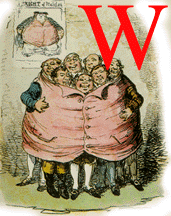
hereas much of the diction in Through the Looking Glass (1872) creates an absurd effect, the use of diction in Bronte's Jane Eyre creates a surreal one. In the passage from Through the Looking Glass , simple language seems to constitute an absurd reality where double meanings of words emphasize a new dimension. The Queen plays with the word "way", giving it another meaning from which it was originally intended. While in the garden Alice says that she has lost her way and asks the Red Queen for help, and the Queen says that all the "ways" belong to her, so then obviously it would have been impossible for Alice to have lost her way in the first place because she doesn't have one. The Queen then requests that Alice "think" while she's curtseying so that it 'saves time" which constitutes another seemingly absurd remark Through the use of simple diction, Carroll distorts reality.
In Jane Eyre, when Jane meets Mr. Rochester for the first time while walking back to Thornfield, Bronte's eloquent use of diction transforms reality into a fantastic rather than absurd world.
a lion-like creature with long hair and a huge head: it passed me, however, quietly enough; not staying to look up, with strange pretercanine eyes, in my face, as I half expected it would, The horse followed, — a tall steed, and on its back a rider. The man, the human being, broke the spell at once. (95)
Jane describes a fantastic "lion-like" creature with "long hair" and queer "pretercanine" eyes that quietly passes by her. Furthermore, after this mystical beast passes her, she claims the "spell" was broken when the man comes. These words help to create a surreal and imaginary world. Using language both Bronte and Carroll distort reality.
Content last modified May 1994